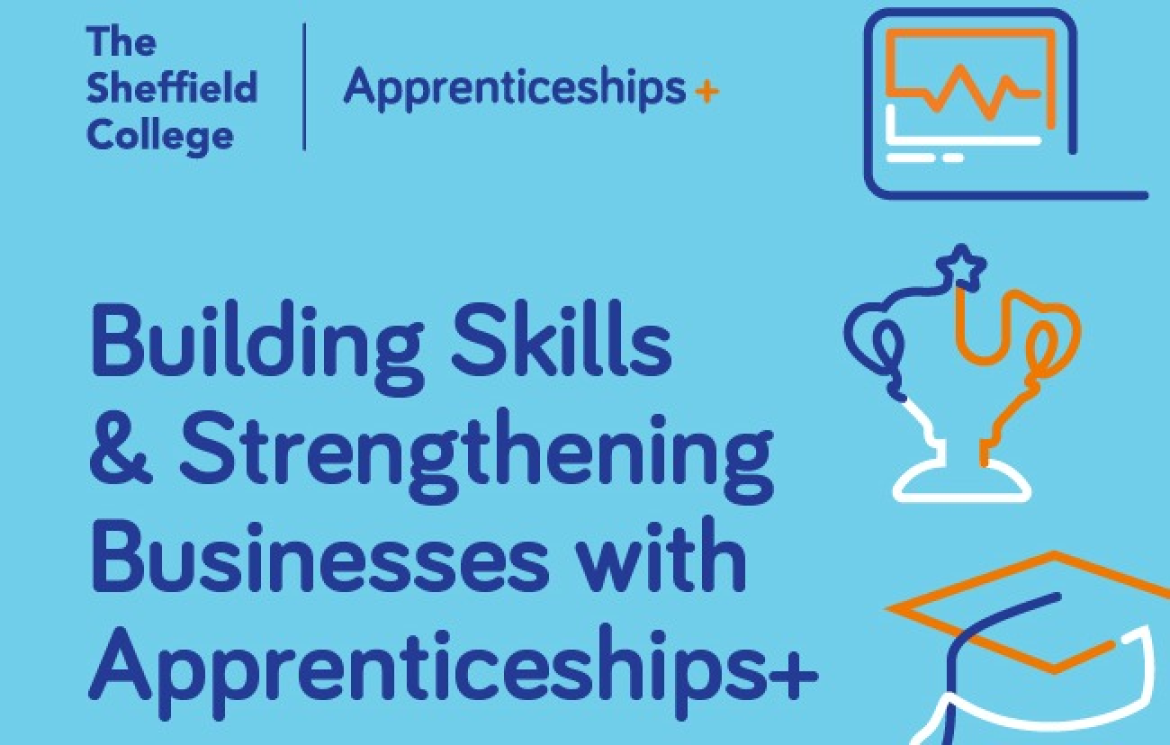News
5 things you need to know before applying for an Apprenticeship
Published: 31st of January 2023
Here are five things you should consider before applying for an Apprenticeship…
Finding a vacancy
Once you’ve found a sector that are interested in, you can search for a position via our Apprenticeship vacancies page.
This page lists all the current Apprenticeship vacancies we have, and you can apply online for your chosen job. Make sure to take a note of the start date, entry requirements and location. This page is updated on a weekly basis, so remember to keep checking back for any new jobs that might have been posted.
Can’t find a vacancy that interests you? Don’t worry! Our team are on hand to help you to find an Apprenticeship vacancy and will support you through the recruitment process. You can contact them via apprenticerecruitment@sheffcol.ac.uk.
The recruitment process
Once you’ve submitted your application, our team of recruitment specialists will pick it up and let you know it’s been received. They’ll check your application through before inviting you in for a chat and a quick skills test.
If you're suitable for the role you've applied for, we will send your application to the employer who will make a decision. If you’re successful you’ll be invited to an interview before hopefully getting a job offer and enrolling on your Apprenticeship programme with us.
When can I start?
Unlike our full-time study programmes, Apprenticeships don’t have to start in September, meaning that you can start as soon as you finish school if you want to.
The key is to check the start date on the Apprenticeship vacancy (most have a start date within a month or so of being listed) – you don’t want to be on holiday when you’re supposed to be starting work!
The good news is we launch new vacancies with new start dates throughout the year, so there’ll always be something starting soon.
How much will I get paid?
There’s not really a fixed amount for how much each Apprentice will get paid – whilst there’s a minimum wage for Apprentices, most employers will set their own hourly rate.
The minimum hourly wage for Apprentices aged 16-18 is currently £4.81 (this is also the case if you’re 19+ but in the first year of your Apprenticeship) and rising to £5.28 in April 2023. Everyone else is paid the appropriate minimum wage for their age – click here to find out more.
It’s worth noting that a lot of employers tend to pay more than this, but always check the vacancy description.
What can I do when I finish an Apprenticeship?
When you finish your Apprenticeship you’ve got a couple of options. You could:
- Level up! Progress to the next level of your Apprenticeship programme (e.g. finish a Level 2, start a Level 3)
- Undertake a university level Apprenticeship (known as Higher or Degree Apprenticeships) which will give you a qualification at the same level as university
- Study at university after the completion of an Advanced Level Apprenticeship
- Pursue full-time employment
Ready to take the next step?
If you have any further questions, please get in touch with our Apprenticeships+ team at: apprenticeshipsandtraining@sheffcol.ac.uk or 0114 260 2600.
News
-

Building Skills and Strengthening Businesses with Apprenticeships+
One of the biggest challenges that employers face is finding and keeping the right people with the right skills. That’s where Apprenticeships+, the home of Apprenticeships at The Sheffield College, are making a real impact.
One of the biggest challenges that employers face is finding and keeping the right people with the right skills. That’s where Apprenticeships+, the home of Apprenticeships at The Sheffield College, are making a real impact. -

Start succession planning with an Apprenticeship
How can you plan for the future and support your company's long-term growth? With an Apprentice of course!
How can you plan for the future and support your company's long-term growth? With an Apprentice of course! -

Meet the tutor - Louise Bell
Meet Louise Bell, our Hairdressing Tutor at The Sheffield College. Louise brings over two decades of hands-on industry experience, from working as a senior stylist in top salons to styling bridal parties in stunning venues across the country.
Meet Louise Bell, our Hairdressing Tutor at The Sheffield College. Louise brings over two decades of hands-on industry experience, from working as a senior stylist in top salons to styling bridal parties in stunning venues across the country.

